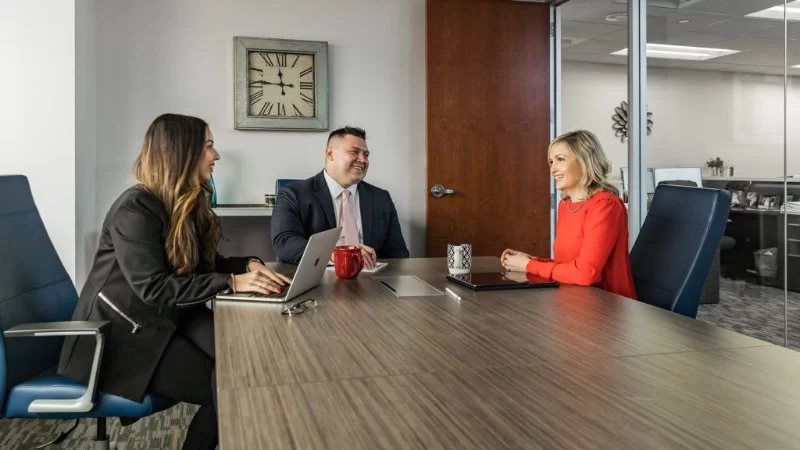- understanding-the-value-of-legal-consultation
- what-to-know-before-your-first-meeting
- documents-you-should-bring
- how-to-organize-your-case-facts
- questions-to-ask-your-lawyer
- emotional-readiness-and-client-mindset
- choosing-the-right-legal-advice-source
1. Understanding the Value of Legal Consultation
Scheduling a legal consultation can be a pivotal moment, whether you’re facing a divorce, a business dispute, or a criminal charge. But knowing how to prepare for a legal consultation can make a world of difference in the effectiveness of that meeting. A well-prepared client empowers their attorney to give better advice, faster.
1.1 Why Preparation Saves Time and Money
Legal time is billed by the hour. If your meeting is spent fumbling for documents or trying to recall critical details, you’re not using that time efficiently. A little homework beforehand not only helps your lawyer get up to speed—it often saves you money.
1.2 The Lawyer’s Perspective
Attorneys appreciate clients who come in focused. As Fred Miller, a seasoned legal advisor, often notes: “Prepared clients help me do my best work. When they walk in with a timeline, relevant documents, and clear questions, we can immediately get to the heart of the issue.”
2. What to Know Before Your First Meeting
The first step is understanding what your legal consultation is for. Is it an evaluation? A strategy session? Clarify this when scheduling. It will help shape what you bring and what you hope to walk away with.
2.1 Clarify the Scope
If you're consulting about a landlord dispute, it’s very different from discussing a personal injury case. Make sure you communicate your issue clearly when you book the appointment so the lawyer can be prepared, too.
2.2 Know What You Want
Do you want representation, a one-time legal opinion, or simply a review of a contract? Define your expectations early so both parties are aligned from the start.
3. Documents You Should Bring
One of the most important aspects of learning how to prepare for a legal consultation is gathering the right paperwork. The goal is to give your lawyer enough material to provide actionable insights.
3.1 Case-Specific Files
Bring anything directly related to your issue—contracts, police reports, emails, receipts, court documents. If it seems relevant, bring it. It’s better to have too much than too little.
3.2 Personal Identification and Contact Info
This includes ID, contact details, and information for other parties involved in the dispute. If a lawyer needs to follow up, having this on file helps speed up the process.
4. How to Organize Your Case Facts
Simply dumping papers on a desk isn’t helpful. Organize your facts in a logical format—chronologically works well in most cases.
4.1 Create a Simple Timeline
Include dates, events, and any communication that occurred. For example, if you're meeting about an employment termination, list your hire date, job performance reviews, incidents, and the date of termination.
4.2 Use Bullet Points or a Typed Summary
Written summaries help lawyers digest your case quickly. One page is ideal. Include your main concerns, what’s happened so far, and what you hope to achieve.
5. Questions to Ask Your Lawyer
A consultation is your time to assess the lawyer as much as it is for them to assess your case. Don’t be afraid to ask hard questions.
5.1 What Are the Likely Outcomes?
No lawyer can predict the future, but a good one can give you an honest sense of best and worst-case scenarios based on similar cases.
5.2 What Will This Cost Me?
Ask about retainer fees, billing structure, and what might trigger extra charges. Transparent communication early on avoids financial surprises later.
5.3 Have You Handled Cases Like Mine?
Experience matters. The more familiar a lawyer is with your specific issue, the faster they can offer meaningful guidance. At Fred Miller Lawyer, for instance, clients often remark how helpful it is when attorneys can cite similar case wins or settlements.
6. Emotional Readiness and Client Mindset
Legal matters can be emotional, especially in personal cases like custody or estate disputes. Preparing mentally is just as important as preparing your paperwork.
6.1 Stay Calm and Objective
While it’s natural to feel anxious or upset, lawyers need facts more than feelings. Be honest, but also try to maintain clarity and composure.
6.2 Be Open to Feedback
Sometimes the legal reality may not match what you want. A good consultation includes truth—even if it’s uncomfortable. The more open-minded you are, the more productive the session will be.
7. Choosing the Right Legal Advice Source
Not all legal consultations are created equal. When selecting a lawyer, look for those who not only specialize in your issue but also value client communication.
7.1 Read Reviews and Testimonials
What do past clients say about the consultation experience? Were they heard, guided, and treated with respect? This often speaks louder than credentials alone.
7.2 Evaluate the Consultation Experience
Were your questions answered clearly? Did the lawyer explain next steps? At Fred Miller Lawyer, client satisfaction is built around transparency, compassion, and personalized legal strategy—qualities that define a successful consultation.
7.3 Ask Yourself: Did I Leave Feeling Informed?
If the answer is yes, you’ve taken the first step toward resolving your legal issue. Preparation doesn’t guarantee a legal win—but it does set you on the strongest possible path forward.


 9130 south dadeland boulevard
9130 south dadeland boulevard dorany rodriguez attorney
dorany rodriguez attorney 555 11th st nw washington dc
555 11th st nw washington dc georgia lawyers for the arts
georgia lawyers for the arts porter law firm
porter law firm cohen feeley
cohen feeley